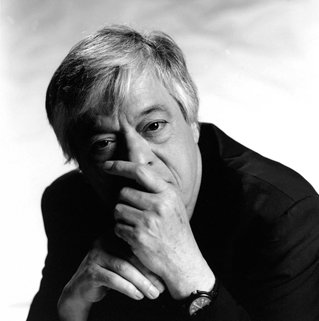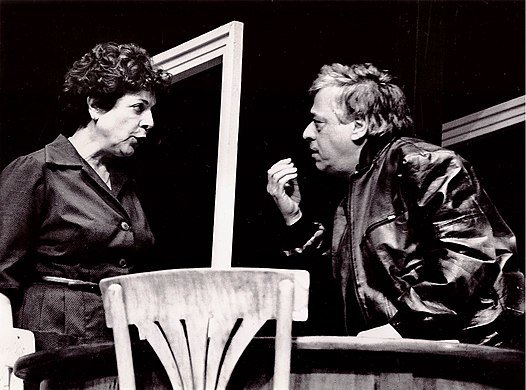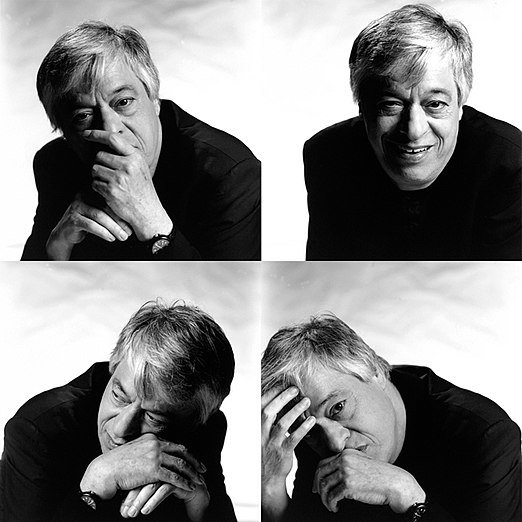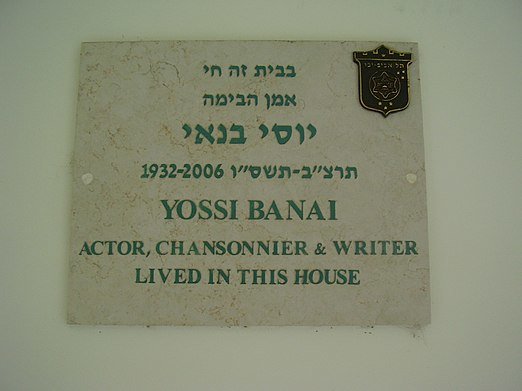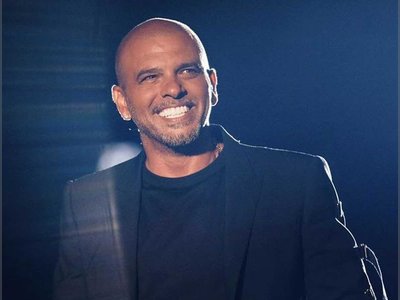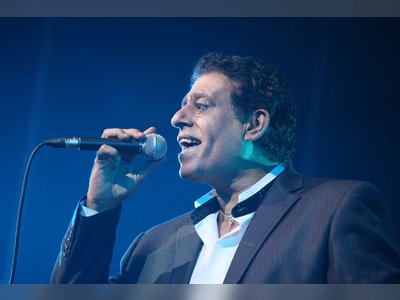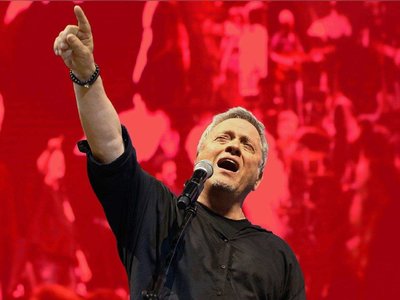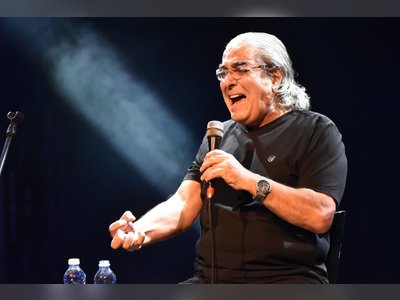Yossi Banai: A Multifaceted Israeli Artist
Yossi Banai (April 13, 1932 – May 11, 2006) was a renowned Israeli singer, film and theater actor, comedian, writer, director, and playwright. He was a recipient of the Israel Prize and the Israeli Theater Prize, and he is considered one of Israel's greatest stage artists.
Early Life and Background
Yossi Banai was born and raised in the impoverished neighborhood of Mea Shearim in Jerusalem, Israel. He grew up in a large family, and despite their humble circumstances, the Banai household was rich in cultural influences.According to his mother, they raised their children between doing laundry loads. Banai did not receive a formal education and acquired his knowledge and skills independently.
Early Career and Theater Influence
Banai, along with his friends and his older brother Haim Banai, began staging amateur performances. His exposure to theater came when he sneaked into theater productions that occasionally reached their neighborhood.His older brother, actor Yaakov Banai, also had a significant influence on his theatrical aspirations. Yossi Banai joined the first Nahal entertainment troupe in 1951 as a performer.
During his military service, Banai studied acting at Pnina Lowi's studio and even signed a two-year contract to continue his studies with her. However, at the end of his training, Lowi advised him that there was nothing more for him to learn in the theater.
Despite this, Banai was determined to become a theater actor. He was accepted for further studies at the Beit Zvi School for the Performing Arts and joined the theater as an actor, starting as an understudy and later taking on significant roles.
Banai's Departure and Return to Theater
In the mid-1950s, Banai left "HaBima" theater with the aspiration of becoming an independent actor, no longer confined to the constraints of a theater company. He traveled to Paris, where he was deeply influenced by French culture and especially by chansons.Upon returning to Israel, he resumed acting on theater stages and in comedy performances. Over the years, he appeared in numerous theater productions, including "Tel Aviv HaKtana," "Revue," "A View from Above the Bridge," "Eddie King," "Tiger at the Gates," "Caucasian Chalk Circle," "The Work of Life," "Cain," "Thirst and Hunger," and more.
He frequently collaborated with playwright Nissim Aloni, who had a significant impact on him, on plays like "The King's Clothes," "The Jaffa Swindlers," and "The Bride and the Butterfly Hunter." In 1963, Aloni, Banai, and Avner Haza founded "The Seasons Theater" and staged Aloni's play "The American Princess" and adaptations of works by Chekhov, Gogol, and Pedro Calderón de la Barca. However, the theater closed after about three years.
Banai's final role on stage was as King David in the play "A Crown on His Head" by Yaakov Shabtai, performed at "HaBima" theater. For this performance, he received the Best Actor award at the Israeli Theater Prize ceremony in 2004.
Yossi Banai, a Pioneer of Nahal's Entertainment Troupe
As one of the pioneers of Nahal's entertainment troupe, Banai also directed several musical programs in the 1950s and 1960s. In 1961, he recorded the music program "Yossi Hazkiona" with Yona Atari, Avner Haza, and Sasha Argov.Banai created and performed in various comedy shows, some of which he wrote himself, including "Difficult Childhood" (1964) and "Marriages According to Divorce" (1973), performed with Rebeca Michaeli.
He also co-created "Ani, Simon, u'Moaiz HaKatan" (1981), "The Return of the Sorel-Amalou" (1992), and "The Skills of a Respectable Israeli" (2000), co-written with Doron Rosenblum. Banai wrote and directed five entertainment programs for the Gashash HaHiver comedy trio, featuring his brother Gavri Banai: "Cassius Clay vs. The Chalafon" (1971), "Upside Story" (1974), "They're Working on Us in Hebrew" (1977), "Cracker vs. Cracker" (1980), and "Goblets of Wind" (1991).
Notable TV and Radio Appearances
Banai was also known for his work as a presenter and narrator. He read texts at events and in various television programs. He served as a narrator on the radio and hosted a documentary TV series on the history of Zionism called "Pillar of Fire." Banai also provided voice-overs for children's fairy tales and narrated the life stories of great composers in the 1980s.He recorded several chapters of the Book of Psalms for a special album, and his reading of Psalm 23 remains particularly famous. He also narrated episodes of the documentary series "The Naked Archaeologist."
Yossi Banai: The Singer and Songwriter
In addition to his theater and comedy career, Yossi Banai was a talented singer known for his deep voice and unique style, especially his love for French chansons. He sang numerous French songs, including translations of songs by Georges Brassens, Jacques Brel, and others.He dedicated several albums and part of his solo career to these chansons, such as the programs featuring Brassens' songs "Ain Ahavot Simchahot" (1969) and "Banai Sings and Tells About Brassens" (1997), and the album with Brel's songs "Im Nadah Levav" (1984).
Most of these French songs were translated by Naomi Shemer, best known for her work on "Ahava Bat Esrim" (Love at Twenty). Banai also performed some original songs written by Shemer, including "Al Kol Ele" ("On All These Things"), which became a beloved hit.
Among his other well-known songs are "Bacholot" ("In the Sands"), "Shikor VeLo Mayim" ("Drunk But Not on Wine"), "Sipur Mal'ai" ("A Full Story"), "HaGvirah BeChom" ("The Lady in Red"), "Erev Iruni" ("City Evening"), "Ani Shar La'Avir Et HaZman" ("I Sing to Pass the Time"), and "Marov Ahava" ("Overflowing with Love").
Later Albums and Legacy
Yossi Banai's last studio album as a singer was "Le'at" ("Slowly") in 2001. The album, produced and arranged by Jonathan Bar-Giora, featured lyrics by prominent Israeli poets such as Shalom Hanoch, Ehud Manor, Arkadi Duchin, and Yehuda Poliker, among others.The album received enthusiastic reviews, and the making of it was documented in the documentary film "Letters in the Wind," directed by Ram Levy. This film was also the title of a book Banai published in 2001.
Banai's final two live performances were recorded in March 2003 at the "Hakita Theater" in Tel Aviv and released as an album titled "Kita Alef." These performances featured many of his iconic songs from his long and celebrated career.
Yossi Banai's Legacy
Yossi Banai made significant contributions to Israeli culture through his multifaceted career. His acting, singing, and comedy touched the hearts of many, making him a beloved figure in Israel's cultural landscape.Banai's work was characterized by its wit, humor, and depth, reflecting his talent and dedication to his craft. His unique voice, both as an actor and singer, resonated with audiences across generations.
Yossi Banai passed away on May 11, 2006, at the age of 74, leaving behind a lasting legacy in Israeli theater, music, and entertainment. He is remembered as a true pioneer and one of the most influential and revered artists in Israel's history.
- יוסי בנאיhe.wikipedia.org
